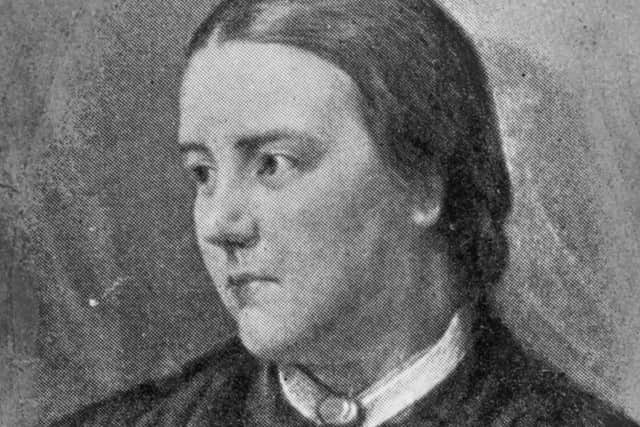'Edinburgh Seven' to finally get degrees 150 years after campaign to allow women to study medicine
Sophie Jex-Blake, Isabel Thorne, Edith Pechey, Matilda Chaplin, and Helen Evans. Mary Anderson and Emily Bovell - who will be honoured in July at an official graduation ceremony - blazed a trail for the rights of women to study at university and practise medicine.
However Britain's first female medical students were confronted by sexism, bureaucracy and even a rioting mob during their studies in Edinburgh.
Advertisement
Hide AdAdvertisement
Hide AdThe university did not allow women to graduate until 1894 - 25 years after the seven medical students began their studies.


But now it has revealed that they will get posthumous degrees to coincide with the 150th anniversary of their groundbreaking campaign.
The university is also searching for surviving relatives of the Edinburgh Seven ahead of the ceremony.
Professor Peter Mathieson, principal and vice-chancellor of the university, said: “We are pleased to commemorate the historic achievements of the Edinburgh Seven in this 150th anniversary year of them joining the university.
"These honorary degrees recognise not just their academic achievements, but the significant contribution these women made to widening access to a university education for generations to follow.”
The Edinburgh Seven campaign was launched when Sophia Jex-Blake was accepted to study medicine at the university but had the decision overturned because it would be too difficult and expensive to accommodate a single female student.
Jex-Blaxe persuaded the then editor of The Scotsman, Alexander Russel, to help encourage more women to apply and another six came forward.
They had to organise their own tuition, charged higher fees, had doors slammed in their faces and even had mud thrown at them by their fellow students as they encountered increasing discrimination.
Advertisement
Hide AdAdvertisement
Hide AdEdinburgh University's own website states: "Their classes, which were taken separately, were graded differently to the men even though the lectures were identical, resulting in diminished scholarship opportunities.
"The everyday jealousy the male students exhibited was vile. The men made life as difficult as possible for the Edinburgh Seven, shutting doors in their faces, howling at them and behaving aggressively.
"Events came to a head at their anatomy exam, when several hundred male students pelted the women with mud and other objects as they arrived.
"The women struggled through the crowd until a supporter unbolted a door to hurry them inside. During the exam the rioters shoved a live sheep into the hall, causing further chaos."
Although the Edinburgh Seven were all prevented from finishing their courses and graduating, their campaign went to London and led to the introduction of a new law allowing women to study at UK universities.
However the first female doctors did not graduate from Edinburgh University until 1896 - when they still had to organise their own tuition.